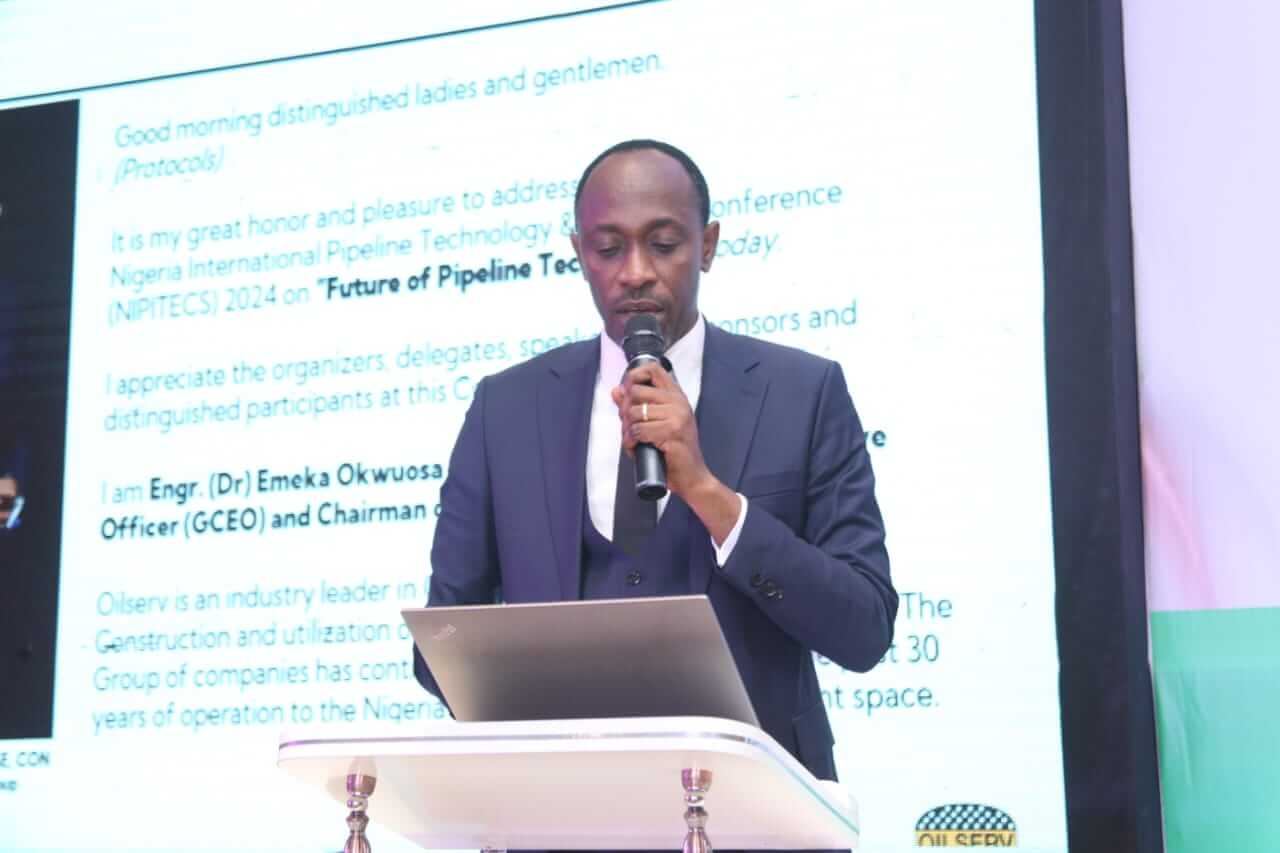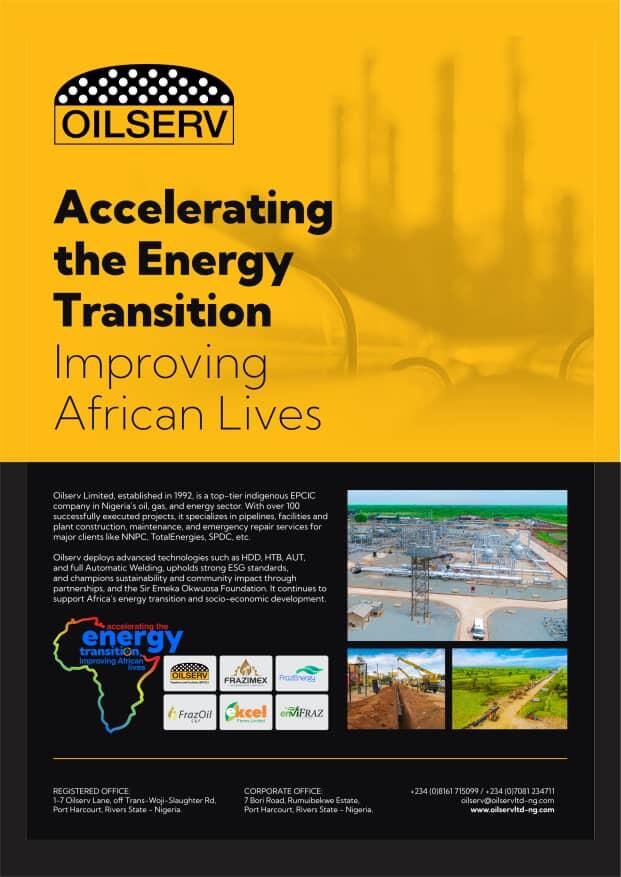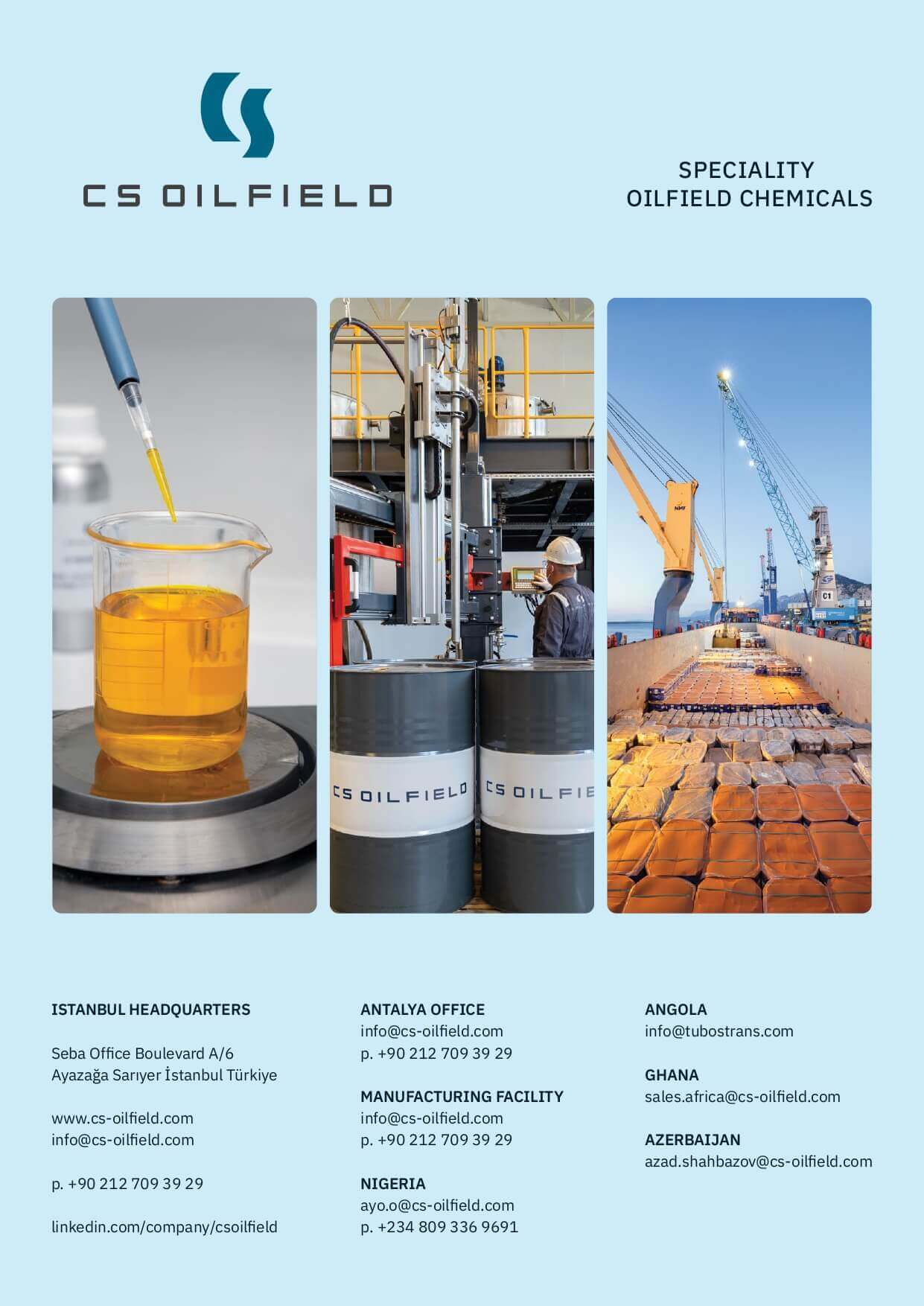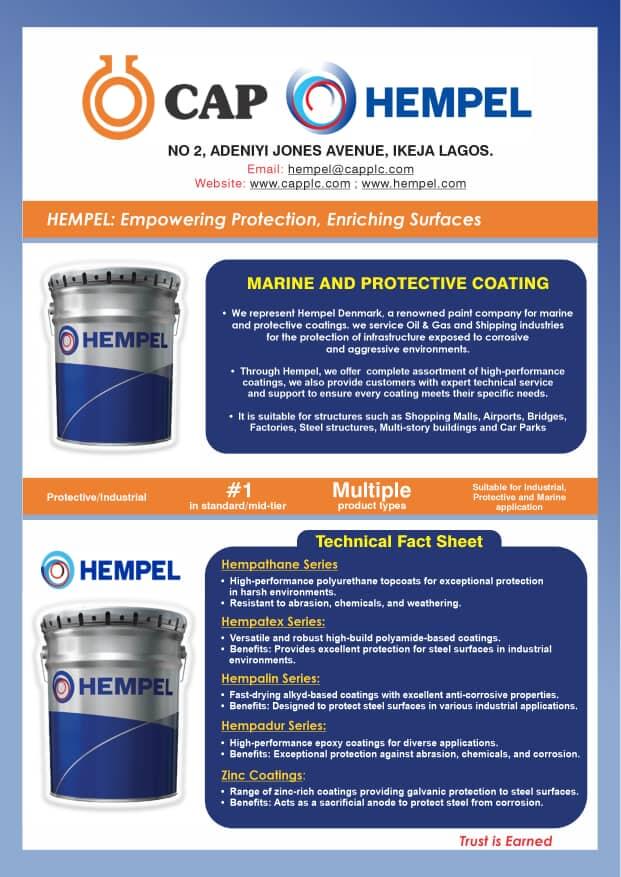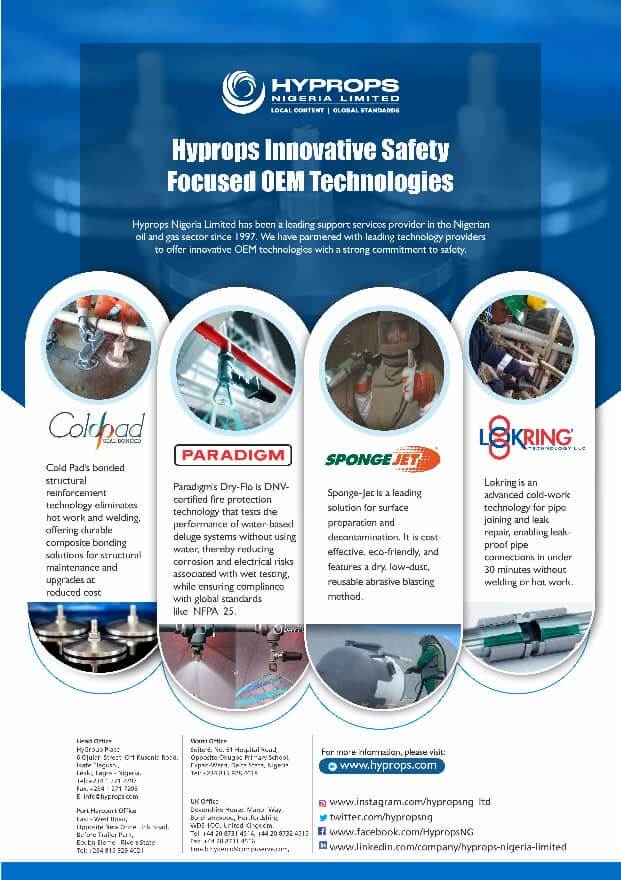The Nigerian International Pipeline Technology and Security Conference (NIPITECS) 2024, held at the Abuja Continental Hotel, brought together industry leaders, policymakers, and Pipeline professionals to explore critical solutions for Nigeria’s pipeline infrastructure. Engr. Cheta Okwuosa, representing Engr. (Dr.) Emeka Okwuosa, CON, Chairman and GCEO of Oilserv Group, delivered a compelling keynote address on the future of pipeline technology. The conference, themed “Pipelines: Critical Assets for National Development and Environmental Sustainability,” focused on Nigeria’s pipeline sector’s role in driving economic growth and sustainability.
The conference themed “Pipelines: Critical Assets for National Development and Environmental Sustainability” convened industry leaders, policymakers, and pipeline professionals to discuss innovative solutions for Nigeria’s pipeline infrastructure.
Distinguished attendees included Hon. Ekperikpe Ekpo, Minister of State for Petroleum Resources (Gas); Mallam Mele Kyari, GCEO of NNPC Limited (represented by Mr. Folorunsho Kareem, MD of NPSC); Engr. (Dr.) Emeka Okwuosa, CON (represented by Engr. Cheta Okwuosa of Oilserv Group); Amb. Nicholas Agbo Ella, Permanent Secretary, Ministry of Petroleum Resources; and other key figures such as Dr. Mshebila Philip (MD, NLNG), Engr. Geoff Onuoha (President of PLAN), Engr. Wole Ogunsanya (Chairman, PETAN), Engr. Abimbola Buraimoh (Manager, Transportation Infrastructure, HPPITI – NMDPRA), Sir Chief Victor Okoronkwo (MD AITEO), and Engr. Adeche Omotosho-Oboro (MD/CEO, Umugini Asset Company). International contributions came from Ms. Puvaneswary Krishnan (Qinline Integrity Services, USA), Thomas Wolf (INTERO Pipeline Integrity, Netherlands), and Engr. Dr. Olutosin Oyetola (Prime Sources Limited). Members of the House of Representatives and other notable dignitaries also participated, highlighting the strategic importance of pipelines in driving Nigeria’s economic growth and environmental sustainability.
In his compelling keynote address, Engr. Cheta Okwuosa highlighted the significant challenges facing Nigeria’s pipeline infrastructure, including aging infrastructure, security threats such as vandalism and crude theft, and funding constraints. These issues have caused inefficiencies and increased risks, disrupted operations, and led to revenue losses, hindering the execution of essential projects and slowing the expansion of the pipeline network. Despite these hurdles, Engr. Cheta identified opportunities to transform the sector, such as expanding the gas pipeline network to meet rising demand, leveraging Public-Private Partnerships (PPPs) for large-scale funding, and utilizing local expertise to boost global competitiveness.
With strategic investments and systemic reforms, Nigeria can build a resilient pipeline infrastructure that supports sustainable economic growth and energy security. In addition, he emphasized Oilserv’s commitment to addressing Nigeria’s skills gap through its Graduate and Technician Training Programs, which have successfully trained and retained over 70% of participants. Partnerships with the NCDMB and plans to establish a welding institute further demonstrate Oilserv’s dedication to developing a skilled workforce, crucial for sustaining the energy sector’s future and enhancing Nigeria’s pipeline infrastructure.
Engr. Cheta highlighted Oilserv’s leadership in adopting advanced technologies to transform Nigeria’s pipeline infrastructure, improving efficiency and sustainability. Key innovations include automated and semi-automated welding systems for precision and durability, Horizontal Directional Drilling (HDD) and Horizontal Thrust Boring (HTB) for efficient pipeline installations in challenging terrains, and Pipeline Inspection Gauges (Smart PIGs) for real-time monitoring.
Additionally, the use of Geographic Information Systems (GIS) and nitrogen membrane systems enhances route optimization and operational safety. These technologies are addressing challenges and currently positioning Nigeria’s pipeline industry for a smarter, more resilient future, fostering sustainable growth and global competitiveness.
Dr. Emeka Okwuosa’s presentation emphasized Oilserv’s role in driving economic development through key projects such as the Ajaokuta-Kaduna-Kano (AKK) Gas Pipeline, which aims to integrate Nigeria’s northern region into the national gas network, and the Obiafu-Obrikom-Oben (OB3) Gas Transmission Pipeline, supporting the nation’s gas master plan. Other major projects, including GL4, AccuGas, City-gate, Eroton, NIPP, Alaoji, UACL, GPAL, ANOH NNPC & SPDC, UBETA, have created thousands of jobs, stimulated local economies, and enhanced energy access for industrial growth, all while adhering to international standards.
The presentation also highlighted Oilserv’s commitment to environmental sustainability through innovative practices and a clear vision for the future by adopting eco-friendly materials, advanced leak detection systems, and efficient construction methods to minimize environmental impact. Community engagement and restoration projects further highlight Oilserv’s dedication to environmental stewardship. Looking ahead to 2030, the focus is on developing hydrogen and carbon capture pipelines, implementing AI-driven smart infrastructure, and reducing carbon footprints with modular pipeline systems, supporting Nigeria’s energy transition and ensuring a sustainable future for pipeline technology.
In a panel session, when asked: what would be the most efficient strategy to deploy to secure our pipeline infrastructure? Engr. Cheta responded that Nigeria’s pipeline infrastructure remains a critical backbone of our industry, yet faces persistent challenges such as aging systems, vandalism, crude theft, and funding constraints. These issues threaten the nation’s economic growth and energy security. To address these challenges, a comprehensive transformation is essential. This involves adopting advanced technologies such as automated welding systems, smart monitoring tools, and environmentally sustainable materials to enhance efficiency and durability.
Also, fostering public-private partnerships (PPPs) can bridge funding gaps and drive innovation in infrastructure development. Equally important is a systemic overhaul to eliminate insider complicity in pipeline sabotage and theft. Cheta stated that by integrating robust security measures with strategic reforms, Nigeria can safeguard its assets while ensuring economic growth and environmental sustainability. The future of Nigeria’s pipeline systems depends on collaborative action among stakeholders to build a resilient, secure, and sustainable infrastructure that supports national development goals. The time to act is now.
Concluding the session, Engr. Cheta reiterated Oilserv’s commitment to driving Nigeria’s economic and energy transformation. He called on stakeholders to collaborate in building a resilient and sustainable pipeline infrastructure, essential for the nation’s long-term growth and environmental preservation. “Together, we can shape the future of pipeline technology, leveraging innovation, sustainability, and local expertise to create lasting value for Nigeria and beyond,” he concluded.

















